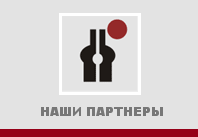17 November 2005
Afghan President Meets with INCB President to Progress against Drugs
Discussion on Article 14 of the 1961
Single Convention on Narcotic Drugs
VIENNA, 17 November (UN
Information Service) -- The President of Afghanistan
Hamid Karzai and Hamid Ghodse, President of the International
Narcotics Control Board (INCB), met this week at UN Headquarters in Vienna
to address Afghanistan's compliance with the 1961
Single Convention on Narcotic Drugs.
Article 14 of the 1961
Convention is currently invoked against Afghanistan, in view of the serious drug
control situation in the country. INCB invokes
Article 14 when a situation in a country seriously endangers the aim of the
Convention.
"This is definitely the case in Afghanistan, by far the largest producer of opium poppy in the
world," the INCB President said. "As a result, illicit
manufacture of heroin and trafficking of opiates is on
the rise and smuggled into other countries in West Asia and on to Europe. Virtually all the heroin abused in Europe originates in Afghanistan."
The Afghan President and the INCB President
spoke about the forthcoming consultations between INCB and Afghanistan, in the context of Article 14 of the 1961 Convention, which are scheduled to take place early in 2006. The INCB President welcomed the
continuing cooperation of Afghanistan in maintaining a close dialogue with the Board on all drug control issues.
Cultivation of Opium Poppy
While some progress has
been reported, the INCB President expressed concern over the
situation of opium poppy cultivation in Afghanistan. The total
area under illicit opium poppy cultivation in 2005 decreased
by 21 per cent, but an increase in agricultural
productivity resulted in the actual production of opium remaining at
almost the same level. Afghanistan
continues to supply the overwhelming
majority of the world's opium.
Central and provincial Governments of Afghanistan were able to eradicate only five per cent of illicit poppy crops in
2005. Moreover, the decline was varied
across the country, showing that some provincial Governments still
need to be committed to eradication efforts.
The INCB President welcomed the
Government's strong stance against proposals to
use illicitly-cultivated opium poppy to produce legal
opiate-based medicines.
Need for Alternative Development
The INCB President
acknowledged that there was a need for legitimate
alternative development in Afghanistan. "Alternative development is about providing legitimate alternatives to people whose only choice
for livelihood has been the cultivation of opium
poppy," the INCB President said. He added, "Experience
has shown that alternative development programmes can only be
successful if the people engaged in growing these crops have an economically viable alternative to illicit cultivation and if such activities are combined with drug abuse prevention."
"At the same time, effective law enforcement is an important
supporting factor for successful legitimate
alternative development as it
will contribute to the building of trust
between local communities and
the authorities and should promote greater involvement of
communities in
the formulation of policies to deal with
the various aspects of the
drug problem," he said.
Professor Ghodse complimented President Karzai on his
Government's efforts towards making a significant impact on illicit crop
cultivation
and illicit drug production, trafficking and
abuse, and for his
personal dedication towards achieving the aims of the
international drug
control treaties.
Afghan Election Results
Professor Ghodse
welcomed the success of the parliamentary elections in Afghanistan which were held in September, adding, however, that "Democracy can only continue to flourish if Afghanistan steps up its efforts to rid itself of the illicit drug trade."
The INCB President urged the international community to accelerate their delivery of assistance to the Afghan Government in its endeavour to address the drug problem.
"Article 14 will remain invoked," the INCB President said, "until Afghanistan makes significant progress in the right direction."
In concluding, the INCB President expressed
appreciation, also on
behalf of the Board, to
President Karzai for his
determination and
strong commitment to the implementation of drug control measures.
The Vienna-based Board is
an independent body, established by the
1961 Single Convention on Narcotic Drugs to monitor Governments' compliance
with the international drug control treaties. Its 13 members are elected
by the United Nations Economic
and Social Council to serve in their
individual capacities for a term of five years. Its sessions are closed to the
public.











